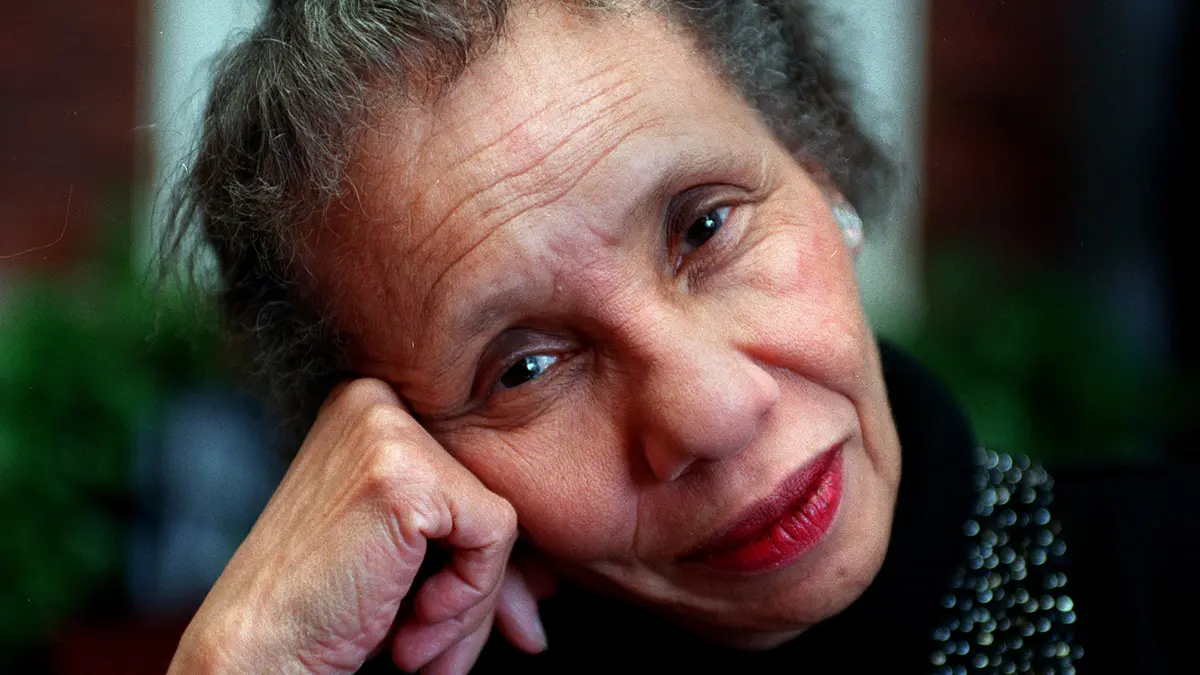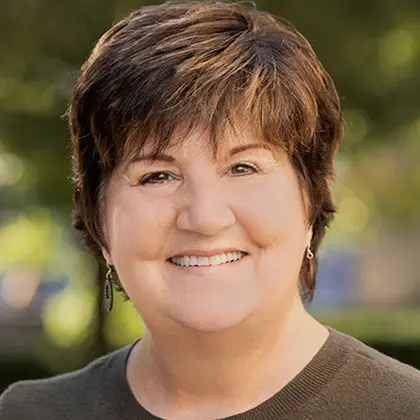We’re proud this playwright’s a Buckeye, too
One of America’s finest dramatists, Adrienne Hawkins Kennedy ’53, ’03 HON has spent six decades writing thought-provoking, poetic works about race and gender.

(Photo from Getty Images)
Editor’s note: This story is part of a “Proud They’re Ours” series that usually runs only in the print version of Ohio State Alumni Magazine. The series features graduates who’ve accomplished great things or made a significant difference for people, planet, industry or culture. To learn how to receive the print edition, visit this alumni association webpage.
Career highlights
Eleven years out of college, Adrienne Hawkins Kennedy ’53, ’03 HON made headlines as a rising playwright when her play “Funnyhouse of a Negro” opened off-Broadway. In November, nearly six decades later, the acclaimed dramatist made her Broadway debut at age 91 with a play set on the Columbus campus. “Ohio State Murders,” with Tony, Grammy and Emmy Award winner Audra McDonald in the lead role, had a two-month run at the just-renamed James Earl Jones Theatre.
Like many Kennedy plays, “Ohio State Murders” depicts the violence brought on by racism. It follows the experiences of Suzanne Alexander, an autobiographically inspired Black writer and alumna who is invited to campus to talk about her work. It’s a story abundant in metaphors and chilling plot twists.
Kennedy’s plays are widely studied at home and abroad. She holds lifetime achievement awards from the Dramatists Guild and the Obie Awards, a Gold Medal for Drama from the American Academy of Arts and Letters, and is an honoree of the Theater Hall of Fame.
Ohio State experiences
In 2003, Ohio State awarded Kennedy an Honorary Doctor of Literature degree. While chair of Ohio State’s theatre department, Distinguished Professor Emerita of Theatre Lesley Ferris arranged for two Kennedy plays to be staged on campus — “Ohio State Murders” in 2001 and “Sleep Deprivation Chamber,” co-written by Kennedy’s son Adam, in 2003.
Kennedy arrived on campus in 1949, an accomplished graduate of Cleveland public schools. She has said in published interviews that she was exposed to little racism until her freshman year of college, when some dorm mates were cruel and her aspirations to study English were thwarted. “She was thrilled to receive the honorary doctorate,” says Ferris, noting that the tribute was akin to salve for long-open wounds.
Adds E.J. Westlake, professor and chair of the Department of Theatre, Film and Media Arts: “As we move into our new facility, we will be looking for more ways to honor Adrienne Kennedy. Everyone at Ohio State is immensely proud to be associated with this amazing scholar and artist.”



